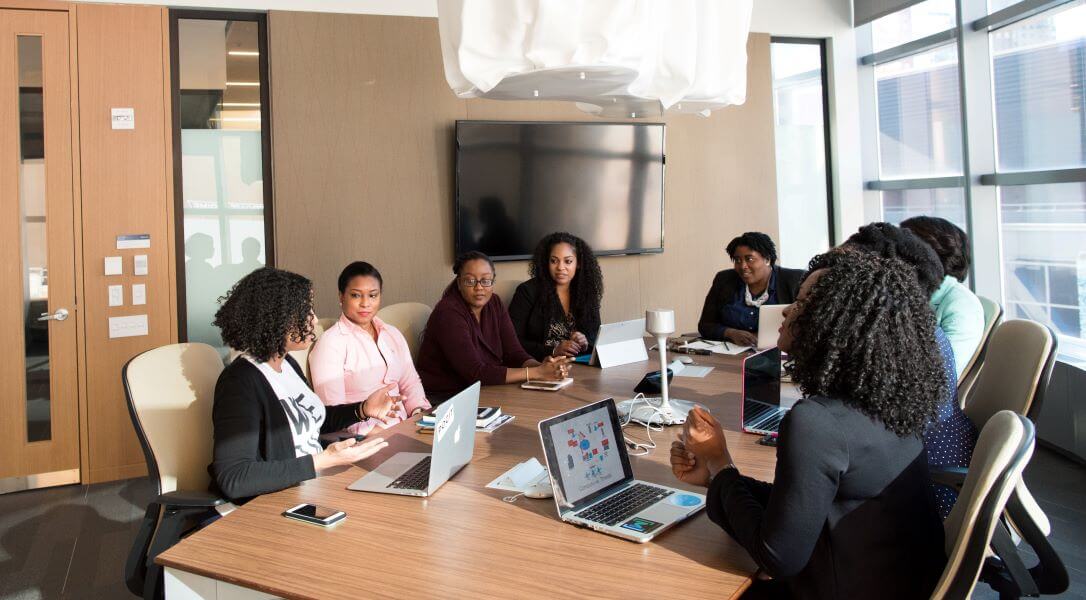I learned through my mother that Black women entrepreneurs are powerful. For over 40 years, my mom was an entrepreneur, overcoming any and all odds to forge a path forward. She became my role model—proving to me that you could be a Black woman and build a business from the ground up. During Women’s History Month especially, I consider the similar experience and challenges that Black women business owners everywhere face, and what can be done to help us thrive.
Thirteen years ago, my mother and I started the Pratt Street Learning Center in Philadelphia. My mother brought her extensive knowledge in the field of childcare and I brought my business expertise. When I first entered the industry, I found myself constantly being lectured on how a childcare business should be run, but I soon developed my own vision. I wanted to be more than a service and build a learning center that offers high-quality educational childcare. I was determined to make my dream a reality and began working to build my business up.
A group of women and I have a group chat called “Black Girl Magic” because when Black women entrepreneurs come together there is an unspeakable power.
But becoming an entrepreneur was no easy feat. I was a young 20-something-year-old Black woman starting my own business in a field where mostly older women are leaders. In addition to the whopping 90 percent wealth gap already experienced by Black women, I was entering a notoriously underpaid field. Though 17 percent of new businesses are started by a Black woman, only 3 percent eventually become mature businesses due to a lack of capital, network, and financial education.
One of the resources that allowed me to overcome these systemic barriers was the Goldman Sachs 10,000 Small Businesses program. In the program, I learned about accounting, marketing and negotiating, things I had never done before, that allowed me to build my business. I learned valuable networking opportunities and found a group of other Black women entrepreneurs, an invaluable community where we support and inspire one another to this day. That group of women and I have a group chat called “Black Girl Magic” because when Black women entrepreneurs come together there is an unspeakable power.
These kinds of programs, including Goldman Sachs’ new One Million Black Women: Black in Business, which focuses on Black women sole proprietors, are critical to helping Black women with entrepreneurial dreams. According to the U.S. Census Bureau, there are over 1.6 million Black women solopreneurs across the nation. It’s clear that supporting this demographic is a critical step in supporting Black women entrepreneurs everywhere.
The impact of investing in Black women is felt far and wide. First and foremost, entrepreneurship is equalizing. Entrepreneurship is key to boosting earnings for Black women and reducing the racial wealth gap. Reducing the wage gap for Black women translates to a huge win for our entire economy, with the potential to create 1.2 to 1.7 million U.S. jobs and increase GDP to $300 to $525 billion, according to Goldman Sachs.
Now that I have successfully navigated the business world and built a thriving business as a Black woman, I want to provide a similar resource to other entrepreneurs. I am launching an education consulting business where I will coach early childhood education entrepreneurs on how to take their passion and turn it into a fully scalable business based on something they love.
It’s on all of us to continue to do our part to bring Black women entrepreneurs to the forefront. Let’s work together to build a better future for Black women, during Women’s History Month, and every day.
Aliya Johnson-Roberts is the Executive Director of Bustleton Learning Center and Pratt Street Learning Center and an alumna of Goldman Sachs 10,000 Small Businesses.
The Citizen welcomes guest commentary from community members who stipulate to the best of their ability that it is fact-based and non-defamatory.
![]() RELATED
RELATED
Photo by Christina @ wocintechchat.com on Unsplash




